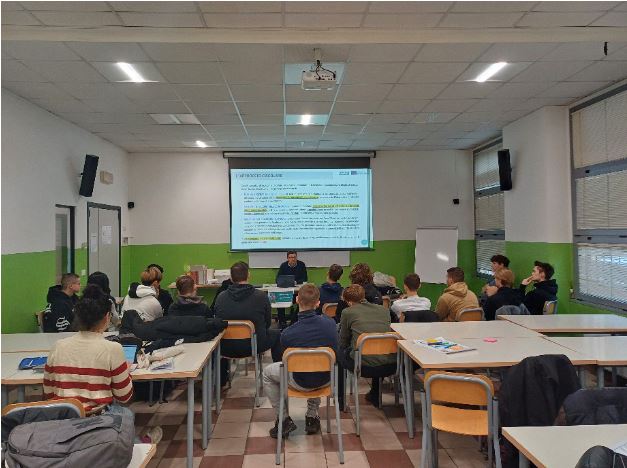The series of Collaboration Labs, held across Europe, marked a significant step towards fostering innovation and sustainability within the youth and business communities. These events brought together young individuals and industry representatives to explore pressing environmental challenges and develop practical solutions.
The recent Collaboration Lab held in Stuttgart effectively engaged young participants and local businesses in discussions around sustainability and innovation. This event not only marked the kick-off of the second round of the Buddy Boosting Training Program but also aimed to foster connections among the 30 registered attendees, which included 26 young individuals and four company representatives. The initial day focused on creating rapport through interactive activities, including a ceramic workshop that allowed participants to explore challenges in a relaxed atmosphere, while also benefitting from insights into the GREENPACT project and the upcoming training program. The second day introduced expert content, with Professor André Reichel delivering a lecture on transformation and sustainability, igniting vibrant discussions that encouraged participants to delve deeper into sustainability challenges through group assignments and presentations.
Meanwhile, the events in Veneto and South Bohemia highlighted the importance of collaboration among Generation F and SMEs in enhancing green and sustainable practices, particularly in the hospitality sector. The Veneto Collaboration Lab aimed to tackle sustainability challenges through creative brainstorming sessions, while the South Bohemia event emphasized circular economy principles within the brewing industry. Participants actively engaged in problem-solving and presented innovative ideas for sustainability initiatives, demonstrating a commitment to fostering impactful solutions. Overall, these collaborative efforts across regions aimed to empower young entrepreneurs and businesses alike, nurturing a culture of innovation and sustainable development aligned with contemporary environmental goals.
Slovakia faced multiple challenges in organizing their Collaboration Lab. Overlapping activities with the Buddy training cohort and scheduling conflicts with student educational activities hindered their efforts. Additionally, the initial timing of the Collaboration Lab, before the Buddy training, was deemed less effective, as the training would better prepare participants for the challenges ahead. While the chosen February date suited the SME partner, its impact on student availability will hopefully work too.
In Croatia, the primary challenge was low participation. Despite extensive promotional efforts, the Collaboration Lab received only four student registrations and three challenge submissions from companies. Feedback from the two-day event indicated a positive reception, particularly regarding interactions with hospitality managers and the culmination of presentations. Participants appreciated the engaging atmosphere, although some highlighted the need for clearer focus on tasks and suggested extending the time allotted for discussions. Addressing these concerns could enhance the quality and impact of future Collaboration Labs, further integrating actionable insights into business models while promoting social and environmental value through strategies such as cost savings, revenue generation, and incentivizing recycling efforts, all contributing to a stronger brand image in the sustainability landscape.
The GREENPACT Collaboration Lab fostered a vibrant setting for generating innovative solutions aimed at enhancing sustainability through practical approaches. Key initiatives included eco- friendly transportation, optimized logistics, and the promotion of sustainable cleaning products. Participants engaged in meaningful discussions about reducing emissions and cultivating responsible consumer behaviour, empowering them with knowledge and skills essential for driving advancements in recycling and waste reduction. The collaboration created pathways for academic engagement, connecting young entrepreneurs with vital industry stakeholders and aiding the GenF participants in building a network that would support their journey towards a more circular economy.
